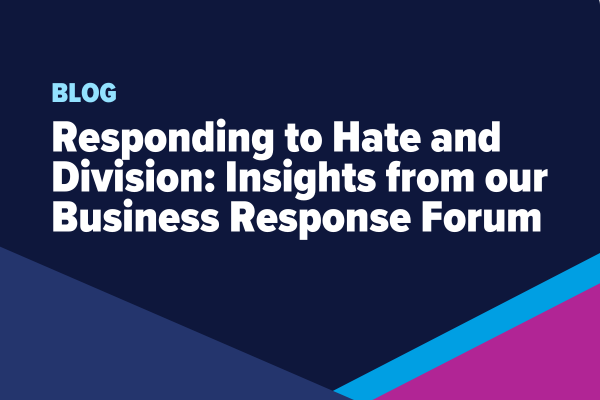Workwell Self-Assessment Tool: Two years on
Workwell Self-Assessment Tool: Two years on
Two years after its launch, Business in the Community’s (BITC) Workwell Self-Assessment Tool reveals how UK organisations are performing in terms of their workplace wellbeing.
Wellbeing in the workplace shouldn’t just be a ‘nice-to-have’, it should be a priority. And it no longer comprises just ‘fun’ employee benefits; workplace wellbeing ranges across everything from good leadership and management to inclusive cultures and better work.
Recent research has shown the average number of absence days per employee has risen to a 15-year high, at an average 9.4 days per year. With the leading cause of long-term absence being mental ill-health, there is a clear call for employers to transform reactive wellbeing measures and move to preventative strategies.
Why is workplace wellbeing important?
It’s clear that workplace wellbeing isn’t just beneficial for the individual employee, but also for the organisation as a whole. Organisations that prioritise their people and ensure that employee wellbeing is embedded into their organisational culture benefit from:
That’s why BITC launched the Workwell Self-Assessment Tool two years ago: to encourage employers to assess their own commitment to prioritising workplace wellbeing, to ensure that they get the most out of their workforce.
What is the Workwell Self-Assessment Tool?
The Workwell Self-Assessment Tool allows organisations to score themselves against 21 multiple choice questions, resulting in an overall workplace wellbeing score and an opportunity for organisations to compare themselves to the UK benchmark, as well as receiving individual feedback.
Looking at the insights from the Workwell Self-Assessment Tool since its launch in 2023, we can see emerging trends in workplace wellbeing over the past two years.
Key workplace wellbeing insights (2023–2025)
Breakdown by sector
Our Workwell Self-Assessment Tool has been taken by organisations in over 40 sectors. Within this rich range of insights, we observe the strongest performing sectors are the financial, real estate, utilities, and legal sectors. While consistent higher-than-average performance is observed within these sectors, there are some intriguing sectoral standouts revealed in the data:
Trends by organisational size
Overall, the insights show that large organisations outperform medium, small, and micro-organisations on average.
The greatest score advantage (+34%) for large organisations is observed in the ‘Better Specialist Support (Measuring and Disclosing)’ category, indicating an in-depth understanding of the utilisation of their externally sourced wellbeing provisions and the wellbeing needs of their people.
However, smaller organisations outperform large organisations on the following areas:
Overall workplace wellbeing
With only just over half (55%) of UK employees feeling like their organisations genuinely prioritise their wellbeing, it has never been more important for employers to show their employees that people come before purpose.
Consistency makes a difference when it comes to measurement of your wellbeing strategy. Interestingly, our data shows that organisations that reassess themselves with the Workwell Self-Assessment Tool score higher on average, with an overall average increase of 4% in scoring.
Moreover, 41% of repeat users of the Workwell Self-Assessment Tool increase their score in the ‘Better Work (Taking Action)’ category. In practice, this demonstrates an increased commitment to:
Why these findings matter
The case is clear: continuous commitment and regular reassessment is vital if organisations want to ensure that they are staying on top of their workplace wellbeing.
Becky Craven, Director of People at Fedcap UK – one of our member organisations that has completed the Workwell Self-Assessment Tool, said: “At Fedcap (UK), taking the [Workwell Self-Assessment] Tool came at exactly the right time. By focusing on organisational behaviours, psychological safety, and better relationships with peers and leaders, we’ve generated a really positive impact. Our employees share sentiment through our survey about their line managers genuinely caring about their wellbeing and we’ve seen an overall increase in colleague engagement, a 50% decrease in absence rates, and a decrease in our voluntary turnover.”
Insights from the Workwell Self-Assessment Tool show that, two years on from its launch, it has never been more important for employers to prioritise their employees and their wellbeing.



